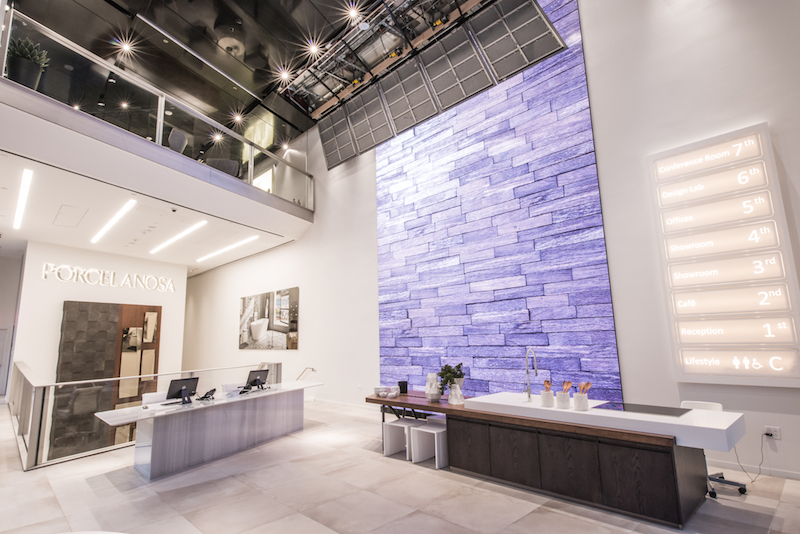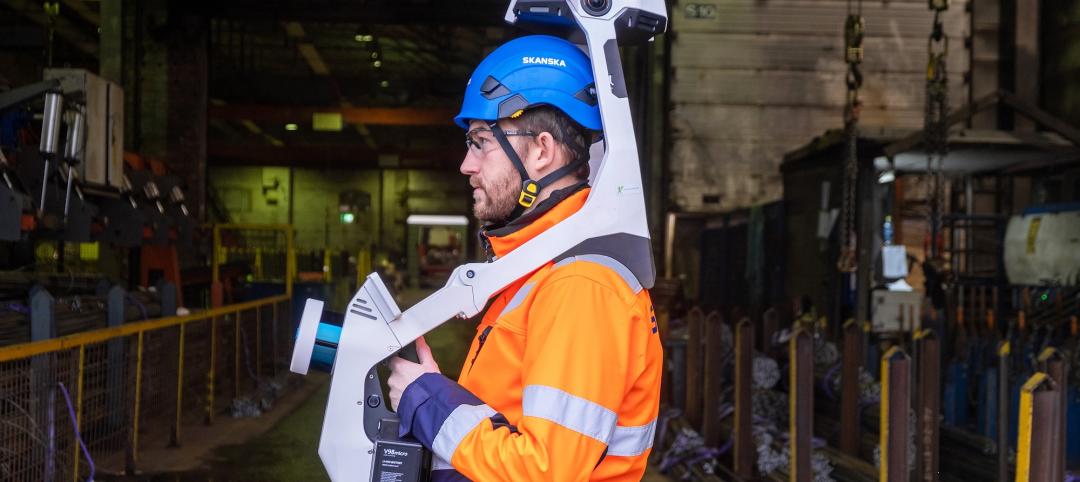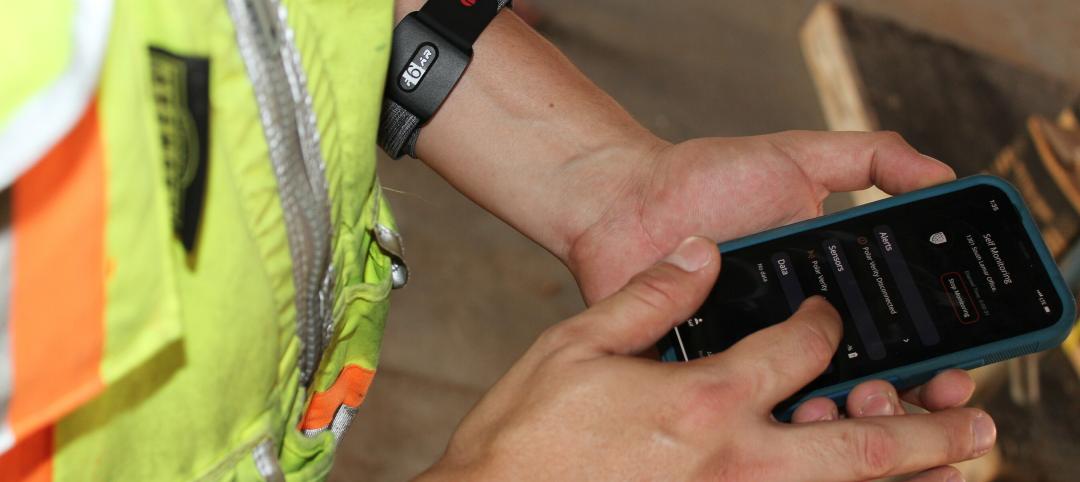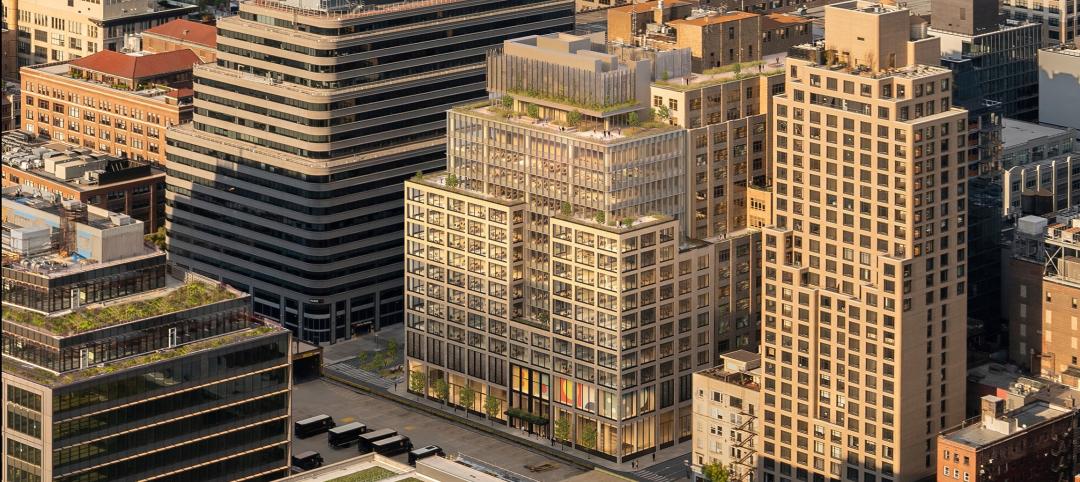Porcelanosa, a maker and distributor of luxury tile, kitchen, and bath products, recently completed the conversion of the former Commodore Criterion building in New York into an 18,000-sf, seven-floor showroom that opened in September.
The showroom, Porcelanosa’s 25th in the U.S., displays more than 1,000 products, notably those made from Krion, Porcelanosa’s solid-surface product for countertops, vanities, and furniture. But even Porcelanosa could not have anticipated that Krion would also serve as panels of a retractable ceiling over the showroom’s main entrance.
One of Porcelanosa’s design demands was no dropped ceilings. So how would wiring and systems that run behind the ceiling be accessible? “There’s a lot of stuff back there,” says Joe Patrovich, Director of Operations for Modworxx, an architectural millwork supplier.
To meet the client’s aesthetic requirement, Modworxx devised a mechanical system with motor-operated pulleys that raise and lower rectangular and triangular Krion panels set on hinges along the ceiling’s perimeter. When those panels open, other panels in the center section of the ceiling slide horizontally on roller tracks into those spaces.
All told, 39 panels cover 1,300 sf of ceiling space. Key switches at the showroom’s mezzanine level control each panel’s movement. Patrovich says the system cost about $350,000.
Santiago Manent, Sales and Marketing Director for Porcelanosa USA, notes the ceiling surface reflects a floor-to-ceiling 26x16-foot LED screen that’s visible from the street, making the screen look double its size.
Foster + Partners was the showroom designer. Americon was the GC.
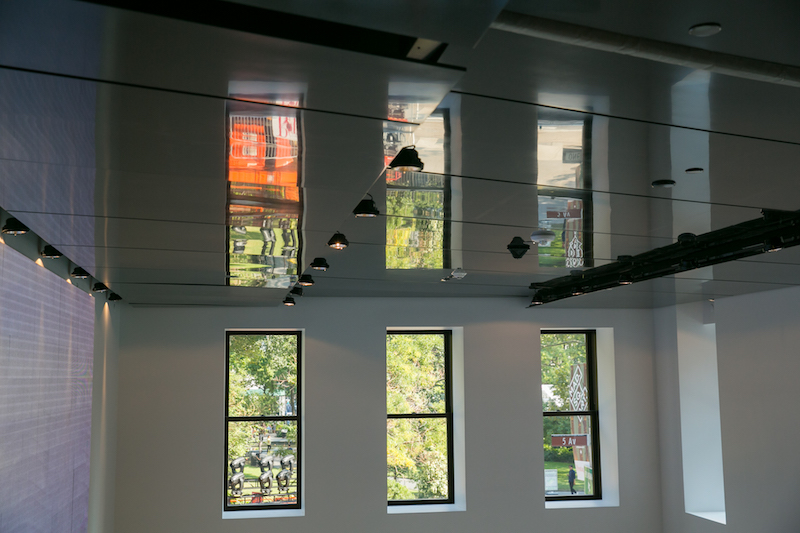 Photo: MODWORXX
Photo: MODWORXX
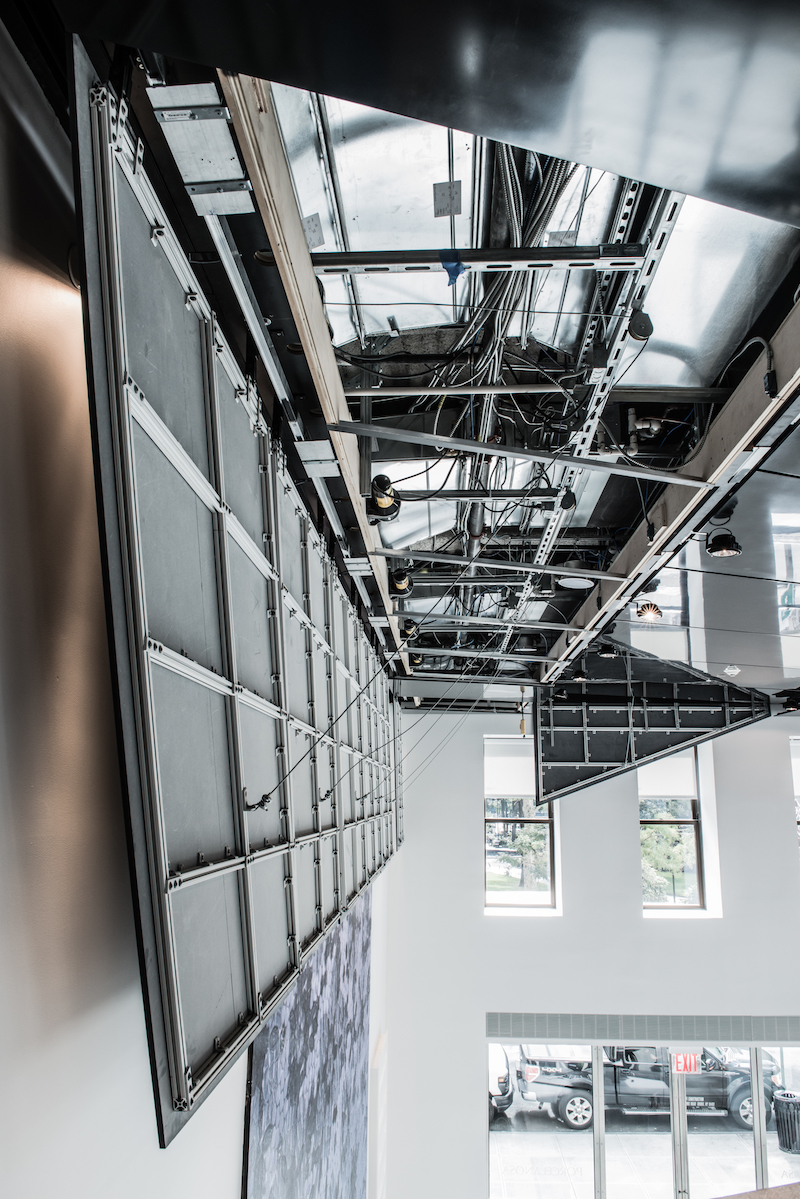 Photo: MODWORXX
Photo: MODWORXX
Related Stories
3D Printing | Sep 13, 2024
Swiss researchers develop robotic additive manufacturing method that uses earth-based materials—and not cement
Researchers at ETH Zurich, a university in Switzerland, have developed a new robotic additive manufacturing method to help make the construction industry more sustainable. Unlike concrete 3D printing, the process does not require cement.
Smart Buildings | Jul 25, 2024
A Swiss startup devises an intelligent photovoltaic façade that tracks and moves with the sun
Zurich Soft Robotics says Solskin can reduce building energy consumption by up to 80% while producing up to 40% more electricity than comparable façade systems.
Great Solutions | Jul 23, 2024
41 Great Solutions for architects, engineers, and contractors
AI ChatBots, ambient computing, floating MRIs, low-carbon cement, sunshine on demand, next-generation top-down construction. These and 35 other innovations make up our 2024 Great Solutions Report, which highlights fresh ideas and innovations from leading architecture, engineering, and construction firms.
Building Technology | Jun 18, 2024
Could ‘smart’ building facades heat and cool buildings?
A promising research project looks at the possibilities for thermoelectric systems to thermally condition buildings, writes Mahsa Farid Mohajer, Sustainable Building Analyst with Stantec.
75 Top Building Products | Apr 22, 2024
Enter today! BD+C's 75 Top Building Products for 2024
BD+C editors are now accepting submissions for the annual 75 Top Building Products awards. The winners will be featured in the November/December 2024 issue of Building Design+Construction.
AEC Tech | Feb 20, 2024
AI for construction: What kind of tool can artificial intelligence become for AEC teams?
Avoiding the hype and gathering good data are half the battle toward making artificial intelligence tools useful for performing design, operational, and jobsite tasks.
Sustainability | Nov 1, 2023
Researchers create building air leakage detection system using a camera in real time
Researchers at the U.S. Department of Energy’s Oak Ridge National Laboratory have developed a system that uses a camera to detect air leakage from buildings in real time.
Resiliency | Aug 7, 2023
Creative ways cities are seeking to beat urban heat gain
As temperatures in many areas hit record highs this summer, cities around the world are turning to creative solutions to cope with the heat. Here are several creative ways cities are seeking to beat urban heat gain.
AEC Innovators | Jun 15, 2023
Rogers-O'Brien Construction pilots wearables to reduce heat-related injuries on jobsites
Rogers-O'Brien Construction (RO) has launched a pilot program utilizing SafeGuard, a safety-as-a-service platform for real-time health and safety risk assessment. Non-invasive wearables connected to SafeGuard continuously monitor personnel to prevent heat exhaustion on jobsites, reducing the risk of related injuries. RO is the first general contractor to pilot this program.
Office Buildings | May 15, 2023
Sixteen-story office tower will use 40% less energy than an average NYC office building
This month marks the completion of a new 16-story office tower that is being promoted as New York City’s most sustainable office structure. That boast is backed by an innovative HVAC system that features geothermal wells, dedicated outdoor air system (DOAS) units, radiant heating and cooling, and a sophisticated control system to ensure that the elements work optimally together.


